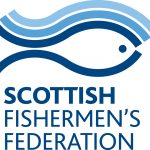
Welcome to Through the Gaps, the UK fishing industry's most comprehensive information and image resource. Newlyn is England's largest fish market and where over 50 species are regularly landed from handline, trawl, net, ring net and pot vessels including #MSC Certified #Hake, #Cornish Sardine, handlined bass, pollack and mackerel. Art work, graphics and digital fishing industry images available from stock or on commission.
Friday, 19 June 2020
Gucci launches a new sustainable 'Off The Grid' collection - what has that to do with fishing?

Thursday, 18 June 2020
Fisheries Bill amendments considered by the Lords. Some technical, but others that have wider importance - read on
Wednesday, 17 June 2020
Busy mid-week market in Newlyn.
Bringing together fishermen and experts in the seafood supply chain to champion innovation
Fisheries Innovation Scotland: “Bringing together fishermen and experts in the seafood supply chain to champion innovation”
Fathom podcast, in conversation with Kara Brydson from Fisheries Innovation Scotland and Paul Macdonald from the Scottish Fishermen’s Organisation, share some exciting industry-led innovations for the Scottish fishing fleet.
In the latest episode from the UK’s only commercial fishing podcast, the Fathom team welcomed Kara Brydson, the Executive Director of Fisheries Innovation Scotland (FIS) and Paul Macdonald from the Scottish Fishermen’s Organisation (SFO). Fathom took this episode ‘on the (virtual) road’ to learn more about fishing innovations in Scotland, and how an unprecedented collaboration by Scottish fishermen will trial bespoke technology and data sharing to help avoid unwanted catches of cod and whiting.
Kara Brydson describes FIS as an organisation that ‘brings together fishermen and other experts along the seafood supply chain, to champion innovation and try new things – to make Scottish fisheries more prosperous and sustainable.’ Speaking on Fathom, Kara Brydson explains that FIS projects must be practical and impactful, to add value to fishing businesses and with fisher expertise built in from the start - from ‘how to best use industry self-sampling to improve trust in fisheries science’, to ‘building capacity within fishing communities and investing in people’.
When asked by Fathom host Paul Trebilcock of the Cornish Fish Producers’ Organisation (CFPO) what innovation means to FIS, Brydson said: ‘Innovation is not just about bits of kit. Innovation can be quite a scary word, and often people say ‘what do you mean?’ But really it’s about doing things better and thinking about things in different ways.’
Paul Macdonald from the SFO detailed an exciting joint project between FIS, fishing organisations and the University of Aberdeen, where fishermen on the west coast of Scotland are piloting a software system to share information on unwanted catches of cod and whiting in ‘real-time’. Macdonald says that the inclusion of skippers in the design and development process ‘[By holding] regular meetings with [them] to get their ideas on how [the mobile app] is developing, and to get their ideas on what things they would find useful’ has been a key part of the project development.
Macdonald says that this collaborative process is helping to create an app built around what fishermen want so it has more potential to be ‘something that is of use and of value to the ones who will actually be using it.’
Trebilcock remarked upon the success of this project – praising FIS for its inclusion of the fishing industry in the development of this app – and sparking deeper conservation about the importance of true collaboration in successful fisheries science projects. Macdonald agreed: ‘We have certainly felt all along that you need to bring fishermen along with you. [The app] needs to be something that’s useful to fishermen, as well.’
Trebilcock said FIS’ project perfectly highlights what the Fathom podcast is all about: ‘Shining a light on good practice and sharing it, so hopefully others will be able to use it…and make it applicable to their fishery, to their challenge.’
Fathom hosts Paul Trebilcock and Chris Ranford agreed that the west of Scotland pilot – an example of best practice innovation – could offer opportunities to fisheries beyond Scottish waters.
Listen to the episode in full here: https://cfpo.org.uk/the-
or subscribe by searching ‘Fathom fishing’ in your podcast provider app.
Tuesday, 16 June 2020
Brexit: EU preparing to row back on rights to fish in British waters
British and European leaders authorised Mr Barnier and David Frost, the UK’s negotiator, to scope out the parameters of a compromise privately.
Speaking after a video call with Ursula von der Leyen, the European commission president, Boris Johnson said that the time had come to put some “oomph” into the negotiations, adding that there was a very good chance of securing a trade deal by the end of the year. Both sides pledged to inject “new momentum” into talks.
Significantly, in their joint statement both sides said that they had authorised their chief negotiators to find “an early understanding on the principles underlying any agreement”. Until now one of the sticking points has been fishing: the EU maintains that Britain must respect the right of EU member states’ fleets to access UK waters on the same terms as the present common fisheries agreement. Under those rules European boats operating in UK waters catch about five times the value of fish that British fishermen catch in EU waters.
Both sides would negotiate reciprocal access to each other’s waters every year, however, as the EU does with Norway. This would give the government leverage to increase the share of the total allowable catch that can be caught by the UK fishing fleet. Mr Barnier is understood to have hinted at the concession during a recent round of negotiations but has so far not tabled a concrete offer.
EU sources said that he was holding off to ensure that it was part of the wider trade deal to make it easier to sell to EU countries such as France and Holland that also have powerful fishing lobbies.
“To dilute the influence of France and the other coastal states, Barnier needs to have the whole trade deal, which stands or falls on fishing,” a senior EU diplomatic source said. A UK government source added:
After the joint statement from both sides Mr Barnier now has the authority to discuss areas of compromise with Mr Frost even if they are not strictly within the negotiating mandate set down by the EU 27 leaders.
How important is fishing to Britain?
It employs about 24,000 people and contributes about £1.4 billion to the economy, 0.12 per cent of GDP. The industry says this has declined since Britain joined the EU and the common fisheries policy.
Yes, because under the common fisheries policy the fishing quota for individual species of fish, which each member state receives, is based largely on how much they fished in the 1970s. Then the UK fleet spent much of its time around Iceland, which is not a member of the EU. This meant it received a smaller quota than other countries that fished in European waters. This means today the UK has a poor share of the total allowable catch. In 2015 the UK was able to catch only £114 million of fish in EU waters, whereas EU vessels were able to catch £484 million of fish in British waters.
At the end of the transition period Britain will be able to make use of its exclusive economic zone extending 200 miles out to sea. This means that other EU states will have no right to fish in these waters unless an agreement is reached. What does the EU want from Britain?
Broadly it wants the trade deal to be as close as possible to the status quo. The fishing industry is an emotive issue in other European countries; if French, Dutch and other EU nations were “locked out” of UK waters their industries would suffer.
It wants to attach its 200-mile exclusive fishing zone to that of the EU in return for a bigger portion of the total catch. This is known as zonal attachment. These quotas would be negotiated annually.
Undeniably the UK, but given fishing is such a small proportion of the economy the EU hopes that the government will trade better access for concessions from the EU in other areas. Brussels expects the government to trade fishing for access for the City of London to the single market. European governments are prepared to trade single market access for fishing rights but believe Britain is asking for too much in return.
Fishing News Awards - 2020 live from last night!

 |
| Add caption |
Five selection boxes of prime-quality seafood to be won!
Unable to host the drinks reception as planned at the Fishing News Awards 2020 presentation evening, the Scottish Fishermen’s Federation is instead offering the chance to win five £50 boxes of seafood in an easy-to-enter competition.
At a time when everyone in the industry is working extremely hard to restore market stability and enhance the circular economy in the wake of the Covid-19 pandemic, freshly caught prime-quality seafood showcasing what demersal, pelagic and shellfish vessels, together with processors, have to offer, was an obvious choice for the prizes.
Halibut, haddock, lemon sole, langoustine, scallops, salmon, smoked haddock and mackerel, monkfish and whole-tail scampi are among the species that will be included in the bespoke presentation boxes to be supplied by Amity Fish.
Enter now, by clicking here
Monday, 15 June 2020
Monday morning's fsh auction in Newlyn - mainly net fish.
Early morning (0520) departure to #BreakersYard for #Duo of the port of #Newlyn decommissioned extremely productive #Trawlers #SaraShaunStevenson / #Filadelfia ‘escort Towboat between craft’..... #NostalgicTimeForMany #FreshCornishFish pic.twitter.com/hgGe36O8C2
— NewlynFishing (@NewlynFishing) May 25, 2020


















